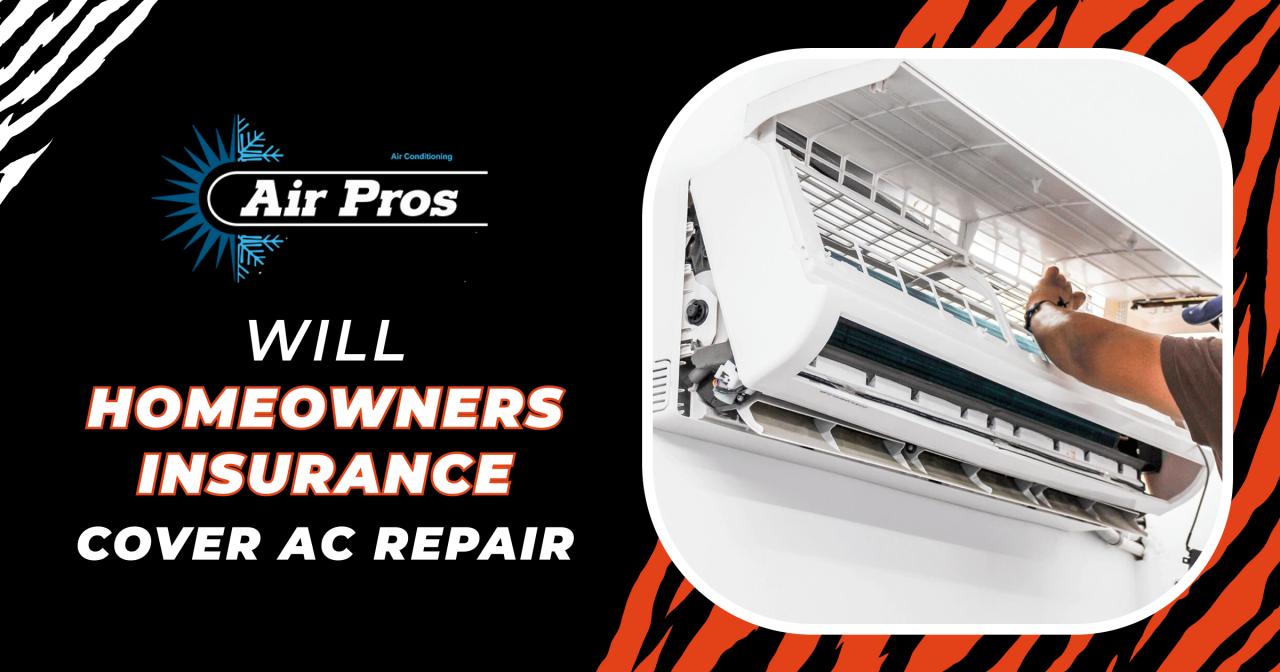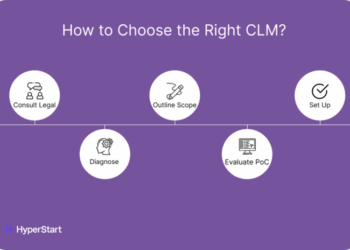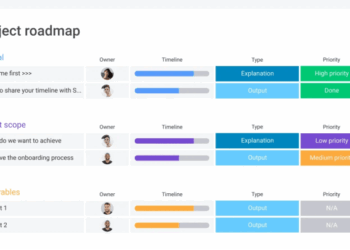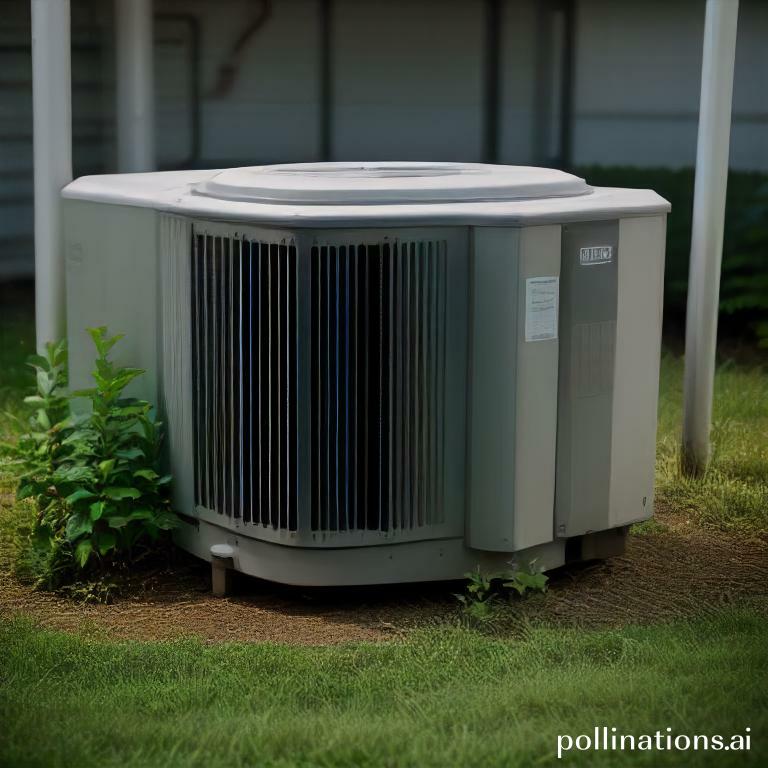Delving into the realm of AC installation and its impact on home insurance premiums, this guide aims to shed light on the crucial relationship between the two. From factors influencing insurance costs to potential discounts or increases, get ready to uncover the intricate details that could affect your insurance premiums.
Ways AC installation affects home insurance premiums
When it comes to home insurance premiums, the installation of an AC system can have a significant impact on the costs. Insurance companies take into account various factors related to the AC installation when determining the overall premium for a home.
Relationship between AC installation and home insurance premiums
The installation of an AC system can affect home insurance premiums due to the increased risk of damage or accidents associated with these systems. Insurance companies consider the presence of an AC system as a potential risk factor that could lead to claims for damages.
Factors that determine how AC installation impacts insurance costs
Several factors play a role in determining how AC installation affects insurance costs, including the age of the AC system, its maintenance history, and whether it meets safety standards. Older systems or poorly maintained units may pose a higher risk of malfunction, leading to potential claims.
Type of AC system installed influencing insurance premiums
The type of AC system installed can also influence insurance premiums. Energy-efficient systems that are less likely to malfunction or cause accidents may qualify for discounts on insurance premiums. On the other hand, outdated or non-compliant systems may result in higher premiums due to the increased risk they pose.
Potential discounts or increases in premiums based on AC installation
Insurance companies may offer discounts for homes with newer AC systems that meet safety and efficiency standards. Regular maintenance and proper installation of the AC system can also lead to lower insurance premiums. Conversely, homes with outdated or malfunctioning AC units may face higher insurance costs to account for the increased risk of potential claims.
Importance of proper installation for insurance coverage
Proper installation of your AC unit plays a crucial role in determining your home insurance coverage. Insurance companies often require that major home appliances, including air conditioning systems, be professionally installed to ensure safety and reduce the risk of accidents.
Professional installation vs. DIY installations
- Professional Installation: When a licensed technician installs your AC unit, insurance providers are more likely to view it as a lower risk. This can lead to lower premiums and better coverage in case of damage or malfunctions.
- DIY Installations: Attempting to install an AC unit on your own can void your insurance coverage or result in higher premiums. DIY installations may not meet safety standards, increasing the risk of accidents and potentially leading to denied claims.
Risks of improper AC installations
Improper AC installations can pose serious risks to your home and safety, impacting your insurance coverage in the following ways:
- Fire Hazards: Faulty wiring or incorrect installation can increase the risk of electrical fires, which may not be covered by insurance if the AC unit was not installed correctly.
- Water Damage: Improper installation of air conditioning systems can lead to water leaks, mold growth, and water damage, potentially resulting in denied insurance claims.
Tips for ensuring a proper AC installation
To safeguard your home insurance coverage and ensure your AC unit is installed correctly, consider the following tips:
- Hire a Licensed Professional: Always hire a licensed HVAC technician to install your air conditioning system, ensuring compliance with safety regulations and manufacturer guidelines.
- Maintain Records: Keep detailed records of the installation process, including receipts, warranties, and any permits obtained, to provide evidence of proper installation in case of a claim.
- Schedule Regular Maintenance: Regular maintenance and inspections by professionals can help prevent issues related to poor installation and extend the lifespan of your AC unit.
Effects of energy-efficient AC systems on insurance premiums
Energy-efficient AC systems can have a significant impact on insurance premiums for homeowners
. Insurers often provide discounts for homes with energy-efficient features, such as HVAC systems, due to the reduced risk of damage or malfunction.
Criteria for discounts on energy-efficient systems
- Insurers evaluate the energy efficiency rating of the AC system, such as SEER (Seasonal Energy Efficiency Ratio) for air conditioners.
- Homes with higher SEER ratings typically qualify for larger discounts on insurance premiums.
- Installation of smart thermostats or other energy-saving features may also contribute to discounts.
Long-term savings potential
- While energy-efficient AC systems may have a higher upfront cost, the long-term savings on energy bills can offset this expense.
- Lower energy consumption leads to reduced wear and tear on the system, decreasing the likelihood of costly repairs or replacements.
Comparison of insurance costs
- Homeowners with traditional AC systems may face higher insurance premiums due to the increased risk of breakdowns or inefficiency.
- Energy-efficient AC systems are considered a lower risk by insurers, leading to potential savings on insurance premiums over time.
Insurance considerations when upgrading or replacing AC systems
When homeowners decide to upgrade or replace their AC systems, there are important insurance considerations to keep in mind. Notifying your insurance provider about these changes is crucial to ensure proper coverage and potentially impact your premiums.
Steps to update insurance when upgrading AC systems
- Contact your insurance provider: Inform your insurance company about the upgrades or replacements to your AC system.
- Provide documentation: Submit any relevant documentation, such as receipts or installation certificates, to your insurer.
- Review your policy: Double-check your policy to see if any adjustments are needed to accommodate the changes.
Impact of notifying insurers about AC upgrades on premiums
Notifying your insurance provider about AC upgrades can potentially lead to adjustments in your premiums, as the value of your home and its systems may change.
Ensuring proper coverage for new or upgraded AC units
- Update policy limits: Make sure your policy limits are sufficient to cover the cost of the new or upgraded AC system.
- Include specific coverage: Consider adding specific coverage for your AC system to ensure protection in case of damage or malfunction.
- Understand exclusions: Familiarize yourself with any exclusions related to AC systems in your policy to avoid surprises during a claim.
Tips for maximizing insurance benefits when replacing AC systems
- Choose energy-efficient models: Opt for energy-efficient AC systems that may qualify for discounts on your insurance premiums.
- Maintain regular inspections: Schedule regular maintenance and inspections for your AC system to prevent potential issues and insurance claims.
- Consider bundling policies: Explore bundling options with your insurance provider to potentially save on premiums when upgrading your AC system.
Concluding Remarks
As we wrap up our exploration of how AC installation affects home insurance premiums, remember that proper installation is key to ensuring adequate insurance coverage. Whether you're opting for energy-efficient systems or upgrading your AC unit, understanding these dynamics can help you make informed decisions to protect your home and finances.
Essential FAQs
How does the type of AC system installed influence insurance premiums?
The type of AC system installed can impact insurance premiums based on factors such as efficiency, age, and maintenance requirements. Energy-efficient systems may qualify for discounts, while older or high-maintenance units could lead to higher premiums.
What risks are associated with improper AC installations and insurance coverage?
Improper AC installations can pose risks such as system malfunctions, leaks, or electrical issues, which may result in denied insurance claims or increased premiums due to potential damages.
How can homeowners maximize insurance benefits when replacing AC systems?
Homeowners can maximize insurance benefits by ensuring proper coverage for new or upgraded AC units, notifying insurers about the upgrades to potentially lower premiums, and maintaining regular maintenance to prevent future issues.









